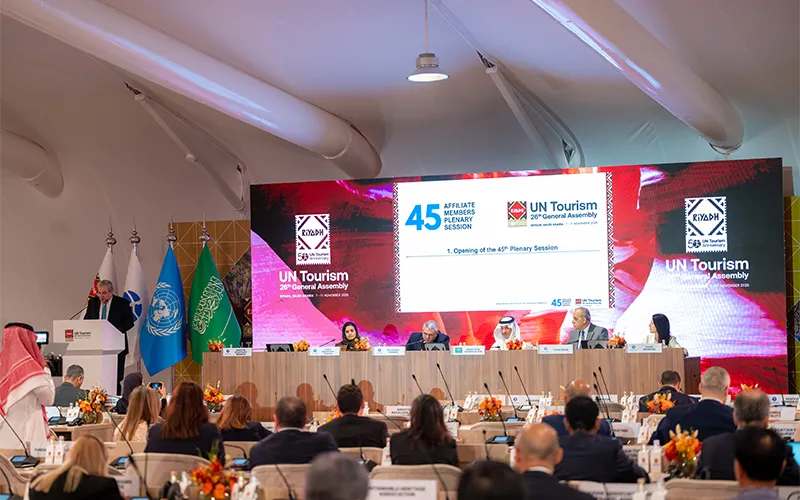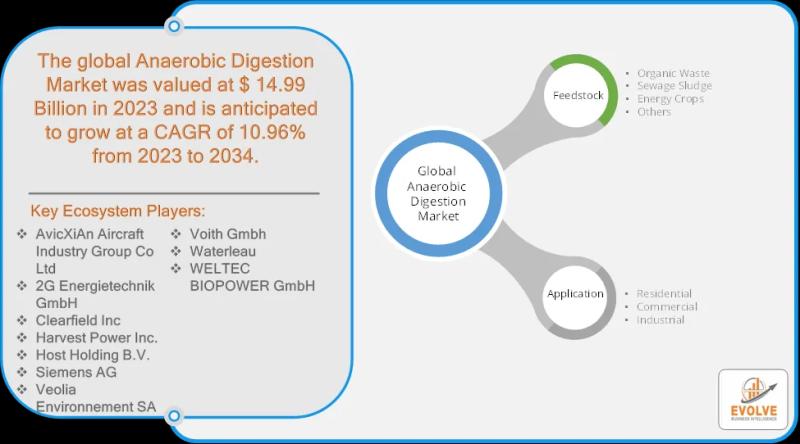UN Tourism Plenary in Riyadh: New Initiatives, Major Progress, and Celebrating Global Contributions to Sustainable Tourism! – Travel And Tour World

Report on the UN Tourism Affiliate Members Plenary Session in Riyadh
Executive Summary
A Plenary Session of the UN Tourism Affiliate Members was convened in Riyadh, attended by approximately 200 delegates from over 100 affiliated entities. The session’s primary objective was to review progress, strategize future initiatives, and strengthen public-private collaboration to advance the Sustainable Development Goals (SDGs) through global tourism. Key outcomes included the presentation of the 2026–2027 Programme of Work, the launch of new collaborative mechanisms, and the recognition of member contributions, all framed within the context of the 2030 Agenda for Sustainable Development.
Strategic Alignment with the Sustainable Development Goals (SDGs)
The session’s agenda was fundamentally structured to reinforce the tourism sector’s contribution to the SDGs. Discussions and initiatives were explicitly linked to fostering sustainable and inclusive growth. Key SDGs addressed include:
- SDG 17 (Partnerships for the Goals): The core theme of the session, emphasizing the need for robust public-private collaboration to achieve sustainable tourism objectives.
- SDG 8 (Decent Work and Economic Growth): Promoted through the development of sustainable tourism products, such as sports tourism, that create jobs and foster local economic development.
- SDG 9 (Industry, Innovation, and Infrastructure): Advanced through a focus on innovative knowledge, new service delivery models, and sustainable infrastructure in tourism.
- SDG 12 (Responsible Consumption and Production): Encouraged by recognizing and awarding excellence in sustainable tourism practices that minimize environmental impact and maximize community benefits.
- SDG 10 (Reduced Inequalities): Addressed through the strategic expansion of membership to ensure a geographically balanced and diverse representation, promoting equity in the global tourism landscape.
Programme of Work for 2026–2027: A Roadmap for Sustainable Action
The Affiliate Members and Public-Private Collaboration Department (AM-PPC) presented a comprehensive Programme of Work for the 2026–2027 biennium. This strategic plan, shaped by over 50 proposals from Affiliate Members, provides a clear roadmap for collective action. The initiatives outlined are designed to directly contribute to the sustainability and resilience of the global tourism sector, aligning member activities with the broader goals of UN Tourism and the 2030 Agenda.
Key Initiatives for SDG Advancement
Several new initiatives were introduced to accelerate progress on the SDGs:
- 1st UN Tourism Awards for Excellence in Sustainable Sports Tourism: Launched in partnership with the Fédération Internationale de l’Automobile (FIA), this initiative supports SDG 8, SDG 11 (Sustainable Cities and Communities), and SDG 12. It aims to recognize and promote projects in the sports tourism sector that exemplify sustainability, innovation, and positive community impact, thereby driving responsible production and consumption patterns.
- Affiliate Members-Driven Services for UN Tourism: This new collaborative mechanism empowers affiliated entities to offer specialized services to Member States. It functions as a global platform for implementing targeted initiatives, leveraging expert knowledge to address specific sustainability challenges and foster innovation, directly contributing to SDG 9 and SDG 17.
- Strengthened Participation in the World Tourism Barometer: To enhance the quality and relevance of global tourism data, designated experts from the Affiliate Members network will now contribute to the World Tourism Barometer. This integration ensures that industry insights inform policy and strategy, supporting evidence-based decision-making for sustainable development and contributing to SDG 4 (Quality Education) through knowledge dissemination.
Recognition of Excellence in Advancing Sustainable Tourism
The session acknowledged the outstanding contributions of Affiliate Members in advancing the UN Tourism agenda. Recognition was awarded across eight categories, each reflecting a commitment to the principles of sustainable development:
- Promotion of global partnerships and a geographically balanced membership (SDG 10, SDG 17).
- Development of innovative sports tourism initiatives for sustainable economic growth (SDG 8).
- Assessment of new trends to foster industry adaptation and resilience (SDG 9).
- Development of innovative knowledge and products for a sustainable sector transformation.
- Demonstrated institutional commitment and successful collaboration on key UN Tourism projects (SDG 17).
- Implementation of successful public-private collaboration initiatives.
- Significant contributions to the advancement of the UN Tourism Programme of Work.
- Leadership as Supportive Partner Destinations committed to the UN Tourism mission.
Conclusion and Future Outlook
The Riyadh Plenary Session marked a significant step in strengthening the integration of Affiliate Members into UN Tourism’s governance and its mission to advance the 2030 Agenda. The new initiatives and the 2026–2027 Programme of Work provide a robust framework for leveraging public-private partnerships. By fostering collaboration and innovation, UN Tourism and its Affiliate Members are poised to enhance the role of tourism as a critical driver for achieving sustainable, inclusive, and resilient development worldwide.
Analysis of Sustainable Development Goals in the Article
1. Which SDGs are addressed or connected to the issues highlighted in the article?
The article on the UN Tourism Plenary in Riyadh addresses several Sustainable Development Goals (SDGs) through its focus on sustainable tourism, global partnerships, economic growth, and innovation. The key SDGs connected to the issues are:
- SDG 8: Decent Work and Economic Growth – The article’s central theme is the development of the global tourism sector, which is a major driver of economic growth and job creation. The emphasis on “sustainable tourism” directly relates to promoting inclusive and sustainable economic growth.
- SDG 11: Sustainable Cities and Communities – By promoting “sustainable tourism” and recognizing projects with “positive community impact,” the article touches upon the goal of making human settlements inclusive, safe, resilient, and sustainable. Sustainable tourism practices inherently involve safeguarding cultural and natural heritage within communities.
- SDG 12: Responsible Consumption and Production – The focus on sustainability, particularly through the “1st UN Tourism Awards for Excellence in Sustainable Sports Tourism,” aligns with the goal of ensuring sustainable consumption and production patterns. This involves promoting tourism practices that are environmentally sound and socially responsible.
- SDG 17: Partnerships for the Goals – This is the most prominent SDG in the article. The entire plenary session is an example of a global partnership in action, bringing together “around 200 delegates, representing over 100 affiliated entities” to foster “public-private collaboration.” Initiatives like the “Affiliate Members-Driven Services for UN Tourism” and the inclusion of members in the “World Tourism Barometer” are concrete examples of strengthening multi-stakeholder partnerships.
2. What specific targets under those SDGs can be identified based on the article’s content?
Based on the article’s discussion of sustainable tourism development and collaboration, the following specific SDG targets can be identified:
- Target 8.9: “By 2030, devise and implement policies to promote sustainable tourism that creates jobs and promotes local culture and products.” The article’s focus on developing a “Programme of Work for 2026–2027” and initiatives like the “Awards for Excellence in Sustainable Sports Tourism” are direct efforts to devise and implement policies and strategies for sustainable tourism.
- Target 11.4: “Strengthen efforts to protect and safeguard the world’s cultural and natural heritage.” The awards program’s criteria of “sustainability, innovation, and positive community impact” imply a focus on tourism that respects and preserves local culture and heritage, which are key assets for the tourism industry.
- Target 12.b: “Develop and implement tools to monitor sustainable development impacts for sustainable tourism…” The article explicitly mentions the “World Tourism Barometer” as a tool that provides “essential insights into global tourism trends.” Strengthening the role of Affiliate Members in this publication enhances its capacity to monitor the impacts of tourism. The awards program also serves as a tool to promote and recognize sustainable practices.
- Target 17.17: “Encourage and promote effective public, public-private and civil society partnerships, building on the experience and resourcing strategies of partnerships.” The entire event described in the article is a manifestation of this target. The text highlights “successful public-private collaboration initiatives,” the creation of “Affiliate Members-Driven Services for UN Tourism,” and the overall goal of “strengthening the integration of Affiliate Members into UN Tourism’s governance and agenda.”
3. Are there any indicators mentioned or implied in the article that can be used to measure progress towards the identified targets?
Yes, the article mentions or implies several indicators that can be used to measure progress:
- For Target 8.9: The article refers to the “World Tourism Barometer,” which “provides essential insights into global tourism trends.” This publication serves as a key tool for monitoring tourism’s economic contribution, which is a direct measure for this target (related to Indicator 8.9.1: Tourism direct GDP).
- For Target 12.b: The establishment of the “1st UN Tourism Awards for Excellence in Sustainable Sports Tourism” is an indicator of the development of tools to promote and monitor sustainable tourism. The “World Tourism Barometer” is also explicitly mentioned as a monitoring tool. The number of sustainable tourism strategies developed and implemented through the “Programme of Work for 2026–2027” would be another key indicator (related to Indicator 12.b.1).
- For Target 17.17: The article provides concrete numbers that can be used as indicators of partnership engagement. These include:
- The number of participating entities in the plenary session (“around 200 delegates, representing over 100 affiliated entities”).
- The number of proposals submitted for the Programme of Work (“more than 50 proposals received from Affiliate Members”).
- The creation of new collaborative mechanisms (“Affiliate Members-Driven Services for UN Tourism”).
4. Summary Table of SDGs, Targets, and Indicators
| SDGs | Targets | Indicators (Mentioned or Implied in the Article) |
|---|---|---|
| SDG 8: Decent Work and Economic Growth | 8.9: Devise and implement policies to promote sustainable tourism that creates jobs and promotes local culture and products. | The “World Tourism Barometer” is used to provide insights and data on global tourism trends, which helps in measuring tourism’s economic contribution. |
| SDG 11: Sustainable Cities and Communities | 11.4: Strengthen efforts to protect and safeguard the world’s cultural and natural heritage. | The awards for “Excellence in Sustainable Sports Tourism” recognize projects with “positive community impact,” implying the protection of local heritage as a criterion. |
| SDG 12: Responsible Consumption and Production | 12.b: Develop and implement tools to monitor sustainable development impacts for sustainable tourism. | The “World Tourism Barometer” and the “1st UN Tourism Awards for Excellence in Sustainable Sports Tourism” are mentioned as tools for monitoring and promoting sustainable practices. |
| SDG 17: Partnerships for the Goals | 17.17: Encourage and promote effective public, public-private and civil society partnerships. | – Number of participating entities in the plenary (“over 100 affiliated entities”). – Number of proposals from members (“more than 50 proposals”). – Establishment of new collaborative mechanisms (“Affiliate Members-Driven Services for UN Tourism”). |
Source: travelandtourworld.com
What is Your Reaction?
 Like
0
Like
0
 Dislike
0
Dislike
0
 Love
0
Love
0
 Funny
0
Funny
0
 Angry
0
Angry
0
 Sad
0
Sad
0
 Wow
0
Wow
0













































































